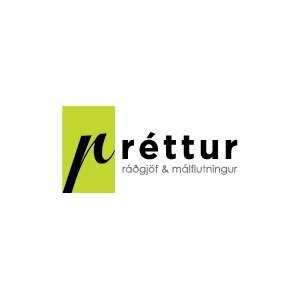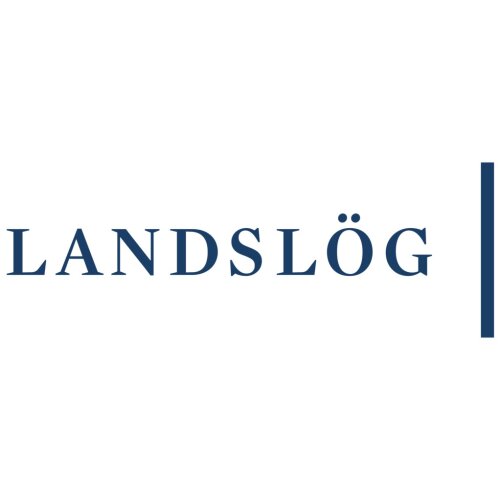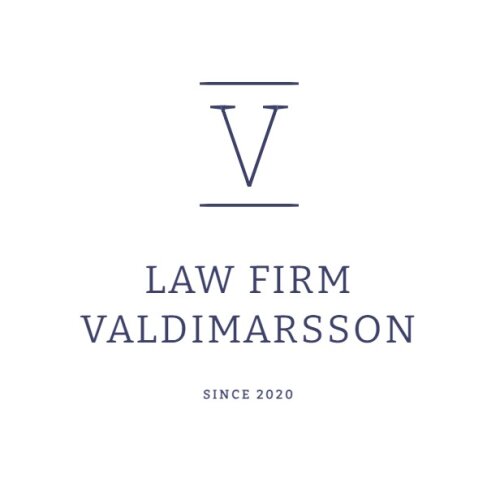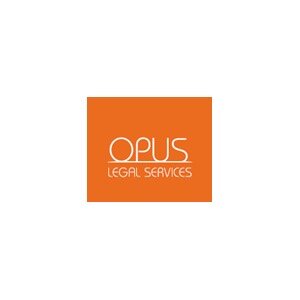Best Funds & Asset Management Lawyers in Reykjavik
Share your needs with us, get contacted by law firms.
Free. Takes 2 min.
List of the best lawyers in Reykjavik, Iceland
About Funds & Asset Management Law in Reykjavik, Iceland
Funds and asset management law in Reykjavik, Iceland is a specialized area that deals with the regulation, oversight, and management of investment funds, assets, portfolios, and related financial services. The sector has seen significant growth due to Iceland's robust economy and the increasing interest from local and international investors. The legal framework ensures that funds are managed responsibly, transparently, and in compliance with both Icelandic and European Union standards, even though Iceland is not an EU member but aligns with many EU directives through the European Economic Area (EEA).
Why You May Need a Lawyer
There are many scenarios in which seeking a lawyer specializing in funds and asset management may be necessary in Reykjavik, Iceland. Common situations include setting up an investment fund, complying with regulatory requirements, conducting due diligence before making large-scale investments, resolving disputes between investors and fund managers, handling cross-border investments, or facing allegations of regulatory non-compliance. Legal professionals can also assist with drafting and reviewing contracts, representing clients before regulatory authorities, and ensuring that portfolio management conforms to the best practices and statutory rules in Iceland.
Local Laws Overview
Funds and asset management activities in Reykjavik are regulated primarily by the Financial Undertakings Act and the Act on Undertakings for Collective Investment in Transferable Securities (UCITS). The Financial Supervisory Authority of the Central Bank of Iceland (FME) oversees licensing, monitoring, and compliance processes. Key regulatory areas include the authorization of fund management companies, anti-money laundering protocols, investor protection measures, risk management requirements, and transparency obligations. The laws incorporate EEA standards, especially related to cross-border cooperation and the marketing of foreign funds within Iceland. Compliant reporting and disclosure are central to the practice, with periodic filings and public disclosures required by law.
Frequently Asked Questions
What is an investment fund, and how is it regulated in Iceland?
An investment fund pools money from several investors to invest in stocks, bonds, or other assets. In Reykjavik, such funds are regulated under applicable local laws as well as EEA standards to protect investors and maintain financial stability.
What is the role of the Financial Supervisory Authority (FME)?
The FME issues licenses, supervises fund managers and funds, conducts audits, ensures compliance with statutory obligations, and can impose sanctions for violations.
Can foreign investors set up funds or invest in Icelandic funds?
Yes, foreign investors can establish or invest in funds in Iceland, subject to local regulatory approvals and compliance with Icelandic and EEA rules.
Do all funds require registration with local authorities?
Most collective investment schemes must be registered and licensed by the FME before operating or marketing to the public within Iceland.
What investor protections exist in funds and asset management?
Icelandic law includes provisions for transparency, risk management standards, disclosure of fund performance, anti-fraud measures, and dispute resolution mechanisms.
Are there specific tax implications for investing through funds in Iceland?
Yes, investments are subject to Icelandic tax laws, including capital gains tax, withholding taxes, and reporting obligations. Consulting a lawyer or tax adviser is recommended.
How are disputes between fund managers and investors resolved?
Disputes can be settled through negotiation, mediation, or before Icelandic courts. In some cases, arbitration may be stipulated in the fund’s governing documents.
What are the typical compliance obligations for fund managers?
Fund managers must comply with ongoing reporting, due diligence, anti-money laundering checks, regular audits, and adhere to conduct of business rules.
Do Icelandic laws apply to online or digital asset funds?
Yes, digital asset management is subject to the same regulatory framework, and may require additional scrutiny in terms of anti-money laundering and cybersecurity.
How can I be sure my investments are protected in Iceland?
Choosing regulated funds and dealing with licensed professionals, verifying all documentation, and understanding your contractual rights and regulatory protections is crucial for safety and compliance.
Additional Resources
- Financial Supervisory Authority of the Central Bank of Iceland (FME): Oversees licensing and compliance for funds and asset managers. - Ministry of Finance and Economic Affairs: Develops financial market policy and legislation. - Icelandic Bar Association: Find qualified lawyers specializing in funds and asset management. - Tax authorities in Iceland: Information on tax obligations for investors and fund managers. - European Economic Area (EEA) Information Portal: Guides on EEA regulations affecting Icelandic finance law.
Next Steps
If you need assistance with funds and asset management law in Reykjavik, begin by identifying your specific needs, such as setting up a fund, complying with regulations, or resolving a dispute. Gather all relevant documentation and information. Then, contact a licensed Icelandic lawyer who specializes in this field for a consultation. Legal professionals can clarify your rights and obligations, handle communications with regulatory bodies, and ensure your actions fully comply with local law. Staying informed and acting with regulatory guidance will help safeguard your interests and support successful asset management in Iceland.
Lawzana helps you find the best lawyers and law firms in Reykjavik through a curated and pre-screened list of qualified legal professionals. Our platform offers rankings and detailed profiles of attorneys and law firms, allowing you to compare based on practice areas, including Funds & Asset Management, experience, and client feedback.
Each profile includes a description of the firm's areas of practice, client reviews, team members and partners, year of establishment, spoken languages, office locations, contact information, social media presence, and any published articles or resources. Most firms on our platform speak English and are experienced in both local and international legal matters.
Get a quote from top-rated law firms in Reykjavik, Iceland — quickly, securely, and without unnecessary hassle.
Disclaimer:
The information provided on this page is for general informational purposes only and does not constitute legal advice. While we strive to ensure the accuracy and relevance of the content, legal information may change over time, and interpretations of the law can vary. You should always consult with a qualified legal professional for advice specific to your situation.
We disclaim all liability for actions taken or not taken based on the content of this page. If you believe any information is incorrect or outdated, please contact us, and we will review and update it where appropriate.

















